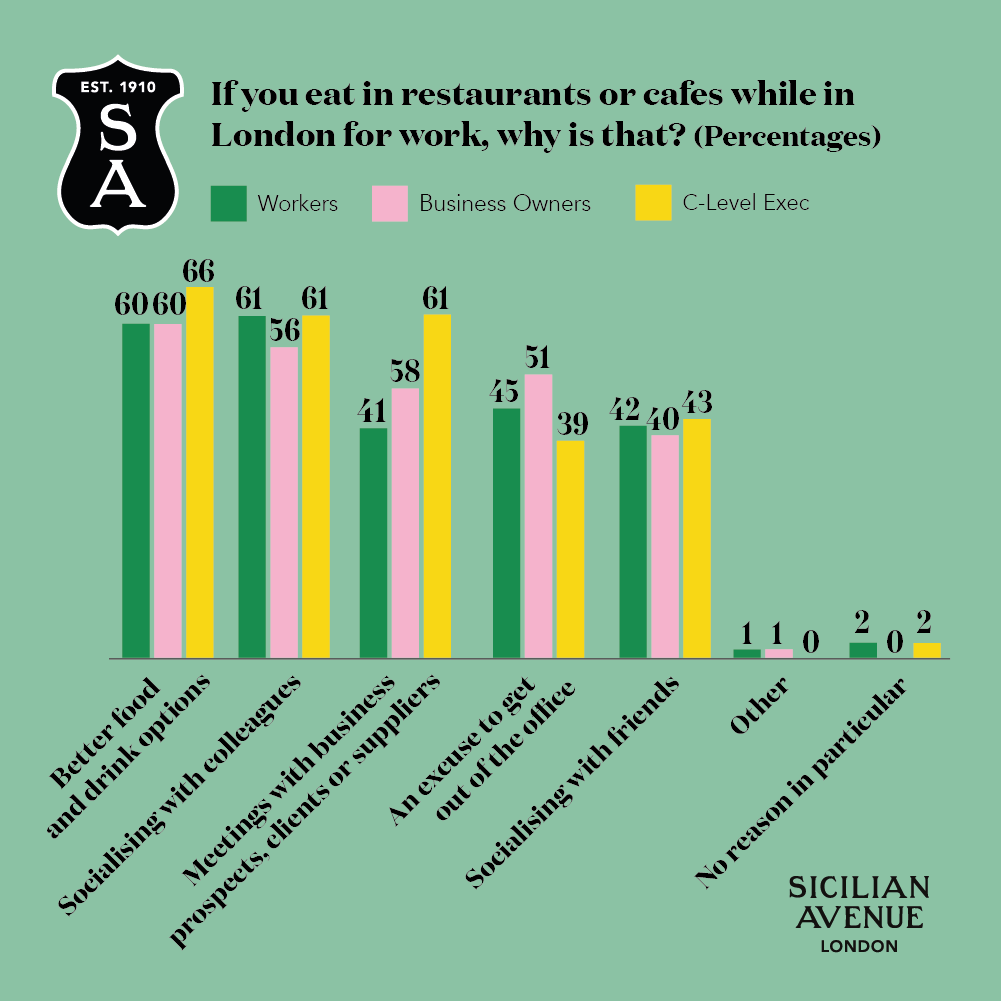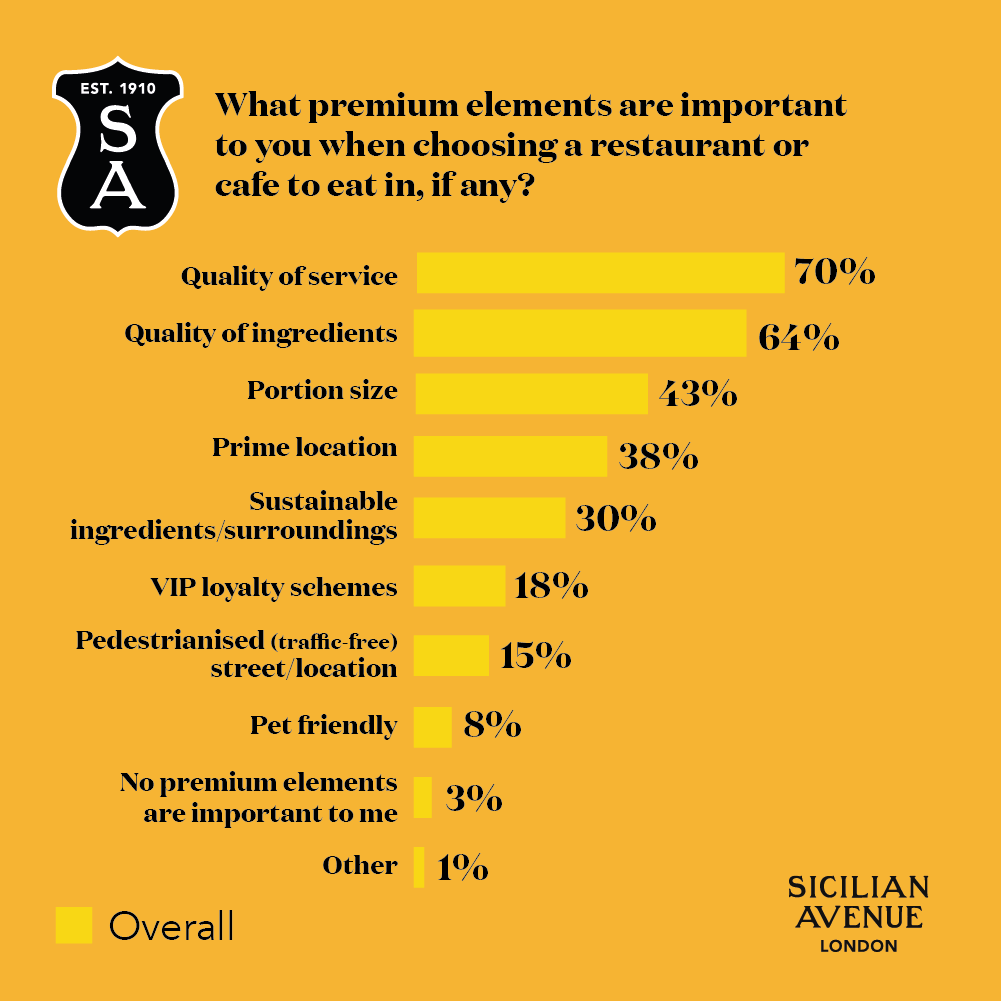Almost three-fifths of business owners prefer to meet clients and partners in restaurants.
It’s a tasty revolution: almost a fifth (19%) of micro-businesses with fewer than ten employees are now using central London's cafes and restaurants as an alternative workspace, marking a novel transformation in the city's business landscape, new research has shown.
A study by real estate investors Tristan Capital Partners finds that while 85% of London's business community still operates from traditional offices, 11% of business owners regularly work from restaurants and cafes. This new way to work is particularly pronounced among entrepreneurs and startups, who value the flexibility and networking opportunities these venues provide.
Business meetings are increasingly taking place over coffee and meals, with 58% of business owners preferring to meet clients and partners in restaurants compared to 41% of regular workers. This shift reflects a broader change in working patterns following the Covid pandemic, as businesses adapt to more flexible and hybrid work arrangements.
The study also highlights a growing demand for premium dining experiences, with 58% of central London's business community more likely to seek high-quality food and beverage venues than in 2019. This preference is even stronger among younger people, with 60% of Gen Z and Millennials prioritising premium dining options.
 Sicilian Avenue Research Graph - When in Central London, where do you work?
Sicilian Avenue Research Graph - When in Central London, where do you work?
 Sicilian Avenue Research Graph - If you eat in restaurants or cafes while in London for work, why is that?
Sicilian Avenue Research Graph - If you eat in restaurants or cafes while in London for work, why is that?
Business meetings are increasingly taking place over coffee and meals, with 61% of C-suite execs and 58% of business owners preferring to meet clients and partners in restaurants. This shift reflects a broader change in working patterns following the Covid pandemic, as businesses adapt to more flexible and hybrid work arrangements.
The study also highlights a growing demand for premium dining experiences, with 58% of central London's business community more likely to seek high-quality food and beverage venues than in 2019. This preference is even stronger among younger people, with 60% of Gen Z and Millennials prioritising premium dining options.
 Sicilian Avenue Research Graph - What premium elements are important to you when choosing a restaurant or cafe to eat in, if any? Overall
Sicilian Avenue Research Graph - What premium elements are important to you when choosing a restaurant or cafe to eat in, if any? Overall
Key factors driving this demand include:
- Quality of service (70% consider this their #1 priority)
- High-quality ingredients (64%)
- Prime location (38%)
- Sustainable ingredients and surroundings (30%)
Pedestrianised settings are particularly attractive among business professionals, with 72% more likely to choose venues in traffic-free areas. This rises to 74% among Gen Z and Millennial workers, who value calmer environments for work and meetings.
The upcoming reopening of Bloomsbury's Sicilian Avenue is uniquely set to offer high-quality dining venues in a historic pedestrianised setting. Located between Tottenham Court Road Station and the British Museum, the development has already garnered significant interest, with 95% of London's business community expressing intention to visit.
This evolution in workplace preferences reflects a broader shift in work-life balance priorities, as professionals seek more flexible, higher-quality environments that combine productivity with wellbeing. For London's entrepreneurial community, restaurants and cafes are no longer just places to eat—they're becoming essential hubs for business operations, networking and collaboration.